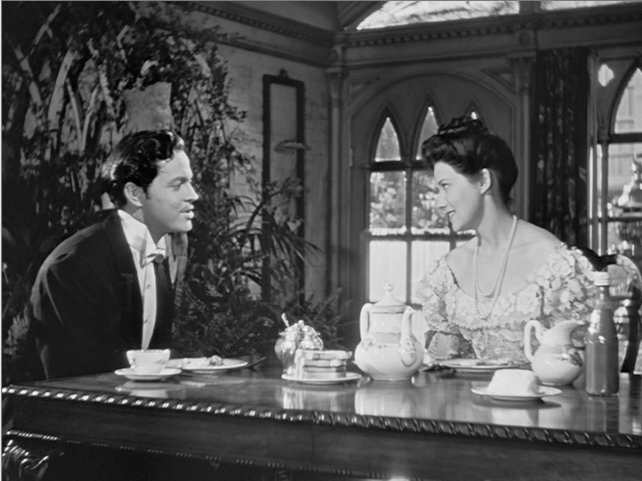If there is one movie that every film teacher has to teach, it has to be Citizen Kane, right?
Every scene has virtuoso shots, brilliant cinematography, great acting. It was Orson Welles' first feature film and he was only 25 at the time! From then on, Orson Welles would still make films but would be given less and less creative control and so none were as good as Citizen Kane.
Citizen Kane is the number one movie on American Film Institute's best 100 movies and was also number one on Sight and Sound's list until recently (2012) when Alfred Hitchcock's Vertigo bumped it off the number one spot.
Citizen Kane was a hard movie for me to like at first because it is not a love story. At least it's not a love story between Kane and another woman. It could be considered a love story between Kane and himself.
fish eye lens shot
Once I got over that though, it is mesmerizing to watch the innovation of camera technique, lighting and editing in every scene.
There is a fish eye lens shot from the vantage point of a broken snow globe. There is a shot where the lighting makes a book glow on a table. There is a shot so wide that Orson can walk all the way to where the windowsill is above his head and back. There are shots where the camera goes in through a neon sign and down into a skylight in the roof. There is a shot that tracks up and up and up to a catwalk high above a stage. There are low angles so low, Orson ripped up the floor boards to go lower.
There is a famous montage that shows a marriage of many years at the breakfast table in two minutes.
And more.
The whole thing is a mystery, what did Kane's last dying word mean when he whispered, "Rosebud"?
Even when you know the answer, you can enjoy the film for all the techniques it uses.


2 comments:
As a film teacher you have to watch it? Then why did we not watch it?...lol
I think I chose to make you guys watch Fritz Lang's "M" instead--also fundamental.
Post a Comment